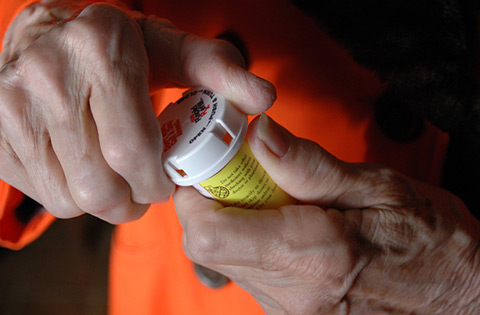
Getting older does have its advantages: Retirement approaches, offering dreams of more hours to fly and freedom to do what you want, where you want, and when you want. But, as life has it, there’s usually a list of drawbacks, too. For many pilots, as they experience an increase in one kind of mobility (traveling and wide open schedules), they also deal with a decrease of another kind of mobility (flexible knees, hips, and hands). Arthritis affects nearly one in five adults, according to the Arthritis Foundation, and more than half of them have not yet reached age 65.
If you notice it’s getting progressively harder to reach the tie-down ropes under the airplane and you struggle to climb into the cockpit, you may be dealing with arthritis. Once your treating doctor has given the diagnosis of arthritis, you have to report it at the time of your FAA physical exam. Severity of symptoms, medications needed to control those symptoms, and how effectively you can perform flight duties are among the issues considered before granting medical approval.
If your symptoms are mild and controlled with occasional use of over-the-counter medications, such as Advil or Tylenol, your aviation medical examiner can issue your medical certificate in the office at the time of your airman medical exam if you bring the following medical information. You'll need to provide a detailed current status report from your treating physician that includes the severity and type of arthritis you are reporting, when you were diagnosed, complete medication information (name, date started, strength, dosage, side effects, and frequency of use), mention of functional status reports, as well as reports from any testing you may have had. Without this information from your treating physician, the AME will not be able to issue your medical certificate.
If you have been diagnosed with moderate or severe osteoarthritis—including Rheumatoid and other forms of arthritis that require prescription medication—your medical record will need to be reviewed by the FAA before a decision regarding airman medical eligibility can be made. To avoid a lapse of your flying privileges, you should submit your medical information to the FAA 60 to 90 days prior to the expiration of your medical certificate, allowing time for the FAA to review your records and provide you with an authorization letter that you can bring to your AME at the time of your medical examination. The FAA letter of authorization will allow your medical examiner to issue you a special issuance medical certificate in the office on the day of your exam. In addition, you will need to provide the following information to your AME:
- A detailed current status report from your treating physician to include type of arthritis; assessment of range of motion of neck, upper and lower extremities and hands; and severity of pain that may affect daily activities.
- Complete medication information, including name, date started, strength, dosage, frequency, and any side effects.
- Any other pertinent medical information, such as testing or hospitalization records.
The AME must defer your airman medical application to the Regional Flight Surgeon or Aerospace Medical Certification division if:
- There is development of any associated systemic manifestations.
- There is new joint involvement.
- Additional medication or treatment is required, including Plaquenil, oral chemotherapy-type medications (Methotrexate, steroids in dosage equivalent greater than 20 mg of Prednisone daily, or gold therapy).
Need some assistance with the certification process? AOPA’s Medical Services Program can help. By enrolling, you will get the help of AOPA’s medical certification specialists, who will review your medical records as they pertain to your medical certificate and act as your advocate with the FAA. These specialists are in regular contact with FAA aeromedical reviewers and can help track the progress of your medical certificate application. Give AOPA a call Monday through Friday, 8:30 a.m. to 6 p.m Eastern time or visit AOPA Online.



